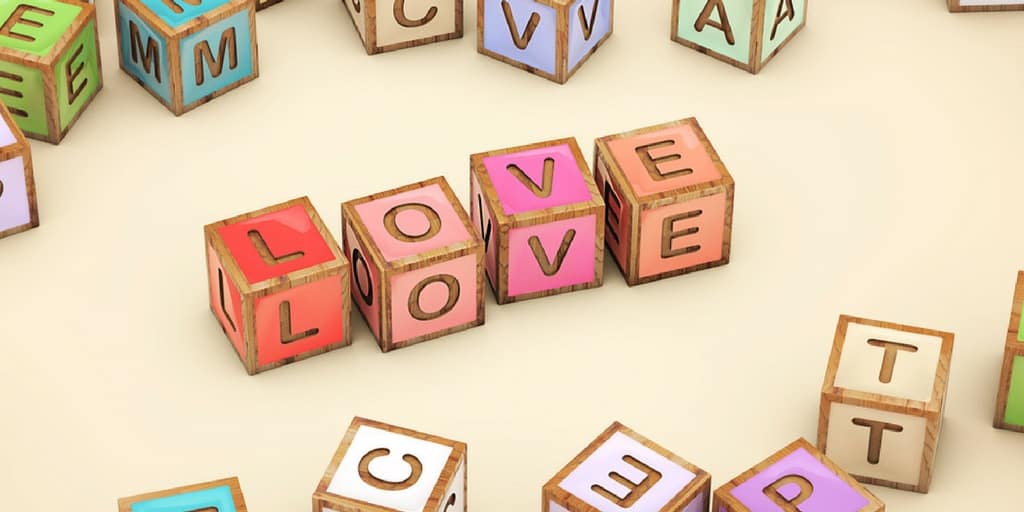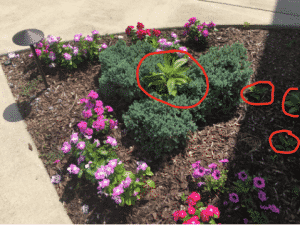
Some of you will see this title and think, “Why would you want to do that?” Others may find it pretty easy to understand. When you struggle with a food addiction, it’s never easy. Who knew that a croissant could bring awareness and freedom, thanks to the tools I received at The Journey Training and a friend who I met there?
My friends and I were having a magical breakfast at The Leaky Cauldron in the Wizarding World of Harry Potter. My meal came with a croissant. I can normally say no to croissants, as there are breads that are much more satisfying and calorie-worthy to me. I told myself I didn’t need it. I offered it to my friends at the table who were not gluten-free. They both politely declined. I even offered it again, and then I just left it on my plate.
I finished breakfast first, and a little voice whispered in my ear: “They’re still eating and you’re done. Just eat it.” I gave in and regretted it.
A little later I was talking to my friend. We are so transparent with each other. The Journey Training enabled us to do that – to go deep and feel safe. She said, “I know you offered it. I was surprised when you ate it, but didn’t want to say anything and hurt your feelings.”
A huge light bulb came on. I struggle with food addiction and I have shed a lot of tears over the years when people have made comments about what I’m eating. I have an inner monologue that says, “They think I’m fat. They think I’m eating way too much. I’m a pig.” I’ve learned to recognize these negative lies. We call them tapes, the stories we make up in our heads. My friend knows this about me and didn’t want me to make up any stories.
I thought about it and had a huge revelation! It wasn’t about WHAT she says, but WHEN to say it. I could see the difference now! I shared with her that if we are eating and I’m clearly trying not to eat something, she can suggest I not eat it or help me get rid of it. That way, she’s helping me do what I’ve already decided beforehand that I want to do. However, if I’m enjoying my food or already eating it, she can just let me eat it. That was a huge awareness for me because I can now communicate this need for support to others.
Two powerful tools from the training were at play here.
- I distinguished between the truth and self-limiting beliefs. It was true I didn’t need to eat the croissant. It was true that my friend could see that. It isn’t true when I make up stories that people think I’m a fat or that they are controlling my food because they suggest I don’t eat something or that I don’t want it from their perspective. They are simply trying to help me.
- I communicated what I needed from my friend. In The Journey Training, we learn to ask the question, “How can I love and support you?” This allows the person to share how they need love so that it will be received as love and not misunderstood or received as something else. You can also tell others what you need from them instead of waiting for them to ask you the question.
What’s your croissant? What do you want sometimes, but need to avoid most of the time?
Do you have beliefs you tell yourself that aren’t true? Do you wish you had someone to hold you accountable when and where you need accountability?
Do you feel like you need better skills in communicating love?
If you answered “Yes” to any of these questions, The Journey Training is for you!
Sign up today!

I learned to make guacamole from my dear aunt, Liz, a number of years ago. She taught me a certain way and for a while, I did exactly what she had showed me: I diced the avocado, tomato and red onion, added in some lime juice and cilantro, and stirred it all together. Then one day, my husband asked me to mash it all together, providing me an opportunity to stop and think.
That moment, that decision, was a gift. It allowed me to truly examine why I was doing what I was doing. It presented a crossroads to either continue with the way I had been going along or to take a turn and change directions. So often we choose to continue on down the way we have been going without thought, on auto pilot. But when we embrace the pause, we take a step back and evaluate the WHY of our actions.
Another gift was presented to me in the guise of guacamole. I chose to mash the avocado into a creamy paste and fold the tomatoes in. My husband and I chose to substitute milder green onions for the stronger red onions and we incorporated garlic powder, because we like garlic. Each decision was reached together.
This is the power of compromise. Finding something that bridges the gap without either party feeling like they have gotten less. We may not get everything we want, but sometimes what we get is even better than what we wanted in the first place.
In The Journey Training I learned tools that help to bridge the gap in communication and find solutions that benefit both parties. I also learned the value of pausing my life for the training weekends and discovered the most amazing things about myself and others.

Cars, children, finances, marriages, friendships; what do all these things have in common? There may be several correct answers, but the one in my mind is that they all take maintenance in order to avert a necessary crisis response.
If you give your car regularly oil changes, put gas in it regularly, give it a tune up every now and then, you can often avoid or at least catch larger problems before they hit crisis mode. If you spend a little time communicating with your children everyday, stay involved in things that they are involved in, and ask questions on a consistent basis, you have a better chance of avoiding huge problems or at least catching them early. Making time for your spouse (such as a regular date night), making them a daily priority, and communicating in an open and honest way daily, can often lead to less crises in a marriage. I hope you get the point I’m trying to make.
So, I want to take this to a different level. In The Journey Training, I learned the benefit of loving and supporting others in my life. This wasn’t totally a new concept for me but it gave me a different perspective on the subject. Previously, I thought it was my responsibility to guess how to love and support others in my life and basically hoped that they would guess right when it came to loving and supporting me.
In The Journey Training, they suggested the idea that it could be better to just ask the person how they would like to be loved and supported. You see, everyone receives love in different ways. What I think may help them or show them love, isn’t necessarily what they need or want. I liked this idea and decided to use it outside the training room to see how it would really work.
I started asking my kids, friends, and even coworkers how I could love or support them. I got so many different answers that I would never have thought of. However, as time went on, I found that I only asked people the question of “how can I love and support you?” during times that I knew they were in crisis. Sure, this showed the person that I would help them if they were on fire. But did it communicate to them that I really cared enough about them to show love and support on a more consistent basis (maintenance versus crisis)?
Matthew 22:39 says, “Love your neighbor as yourself.” I started thinking. I wanted to be known, loved and supported by others on a consistent basis, not just when I was experiencing a crisis in my life. Then I realized, if I asked those I care about regularly how I can love and support them in day to day life, then maybe when they hit crisis mode, I would at least have a base line for what they need even if they didn’t know what to ask for in the moment.
Sometimes a little bit of effort, every day or every week, will pay off in the long run when we, ourselves , or those we love need it. So, don’t be afraid to
ask the question or to answer it if someone asks you; how can I love and support you?

“Mind the gap” is a warning phrase issued to rail passengers in the United Kingdom (and elsewhere) to take caution while crossing the gap between the train door and the station platform. There were many factors as to why this phrase was selected but among them was the need to communicate a concise message quickly and effectively.
The technology we have available to us today allows us to communicate very quickly! We carry our phones with us everywhere we go and we text, post comments, email, or call each other whenever we want. I do love that capability!
Yet I fear this same technology is actually helping to make us more ineffective. The technology itself is not to blame. We are choosing to interact face-to-face less often. We’re even choosing to talk to each other less often while using our phones to type our messages instead. Our electronic messages are becoming shorter and shorter. Their meaning becoming less and less clear.
Important pieces of what we are truly trying to convey are falling into the gap. Because of this we are misunderstood, we become frustrated with ourselves and others, and we begin to make up stories in our head to try to fill in the gaps of what we think is missing.
We may even take things a step further by not communicating at all with those closest to us. We take advantage of our closest relationships as if they should be able to read our minds and know what we are thinking or what we want. We get upset when they don’t guess correctly and we begin to make up stories in our head about how little they must care about us.
Does any of this sound familiar?
It’s as if we are beginning to forget how to sit still, look at someone, and talk to one another. Is it time to stop looking at our electronic screens for a second and “mind the gap”?
In The Journey Training, we talk about the importance of being present with other people. It’s not that hard! We simply need to sit down with someone, look at them, and talk. Use simple questions or statements like: How can I help you today? What do you need from me? How can I love and support you? You’ll be amazed at the answers you’ll receive if you’ll only ask the questions.
Life is about relationships and we should constantly strive to create a win-win situation whenever we can. Remembering that we can choose to slow down a bit, sit down and talk, will do just that. Choose to stop allowing things to fall into the gap!

My wife, Lisa, and I are blessed to have a beautiful home. It’s not beautiful because it’s the biggest or fanciest home we’ve ever owned. It’s beautiful because of the love we’ve poured into it and Lisa’s gifts and talents for making anything in this world more beautiful. It’s what she was created to do!
The other day, we were outside planting some new flowers in the flower beds and we noticed that quite a few weeds had begun to appear in some areas. We had already done a lot of work that day so I made her a promise that I would take care of the weeds and have them out before she got back home from a trip she was about to take.
Being the great procrastinator that I can be, I didn’t jump on this task right away. I left the house and came home many times over the  next several days. Then one day, all I could focus on was the weeds as I came in the driveway. I couldn’t see all the beautiful flowers anymore, even though they were still right there.
next several days. Then one day, all I could focus on was the weeds as I came in the driveway. I couldn’t see all the beautiful flowers anymore, even though they were still right there.
So I finally got to work on the commitment I had made and while I was pulling the weeds I started thinking about things from a different perspective. Why was I so focused on the weeds and not the flowers? Why was I allowing the weeds to redefine the true beauty of the flowers?
Then it occurred to me that we do that with ourselves and other people all the time too if we’re willing to be honest. It really is a matter of focus. We can become so focused on a negative behavior or event that we will actually begin to treat ourselves or other people differently. We will wipe out years of good decisions or years of love and kindness in the blink of an eye. Before we know it, something that was once so beautiful begins to disappear as if it doesn’t exist. Yet it’s still right there.
Where’s your focus right now? Is it the weed or the flower? What is bothering you right now? Are you so focused on something you haven’t done right or that someone else hasn’t done right that you can’t see who you or they truly are anymore?
We should be careful about what we choose to focus our attention on and for how long. If we have done something wrong or someone else has done something wrong, we should face it and hold ourselves or others accountable. We should pull the weed and not ignore it or dwell on it.
And then we should strive to remember this:
“Finally, brothers and sisters, whatever is true, whatever is noble, whatever is right, whatever is pure, whatever is lovely, whatever is admirable — if anything is excellent or praiseworthy — think about such things.” Philippians 4:8
Where’s your focus? What will you choose?
—
To learn more about The Journey Training, visit us at www.thejourneytraining.com. Hope to see you in the next class!
Page 1 of 1212345...10...»Last »







